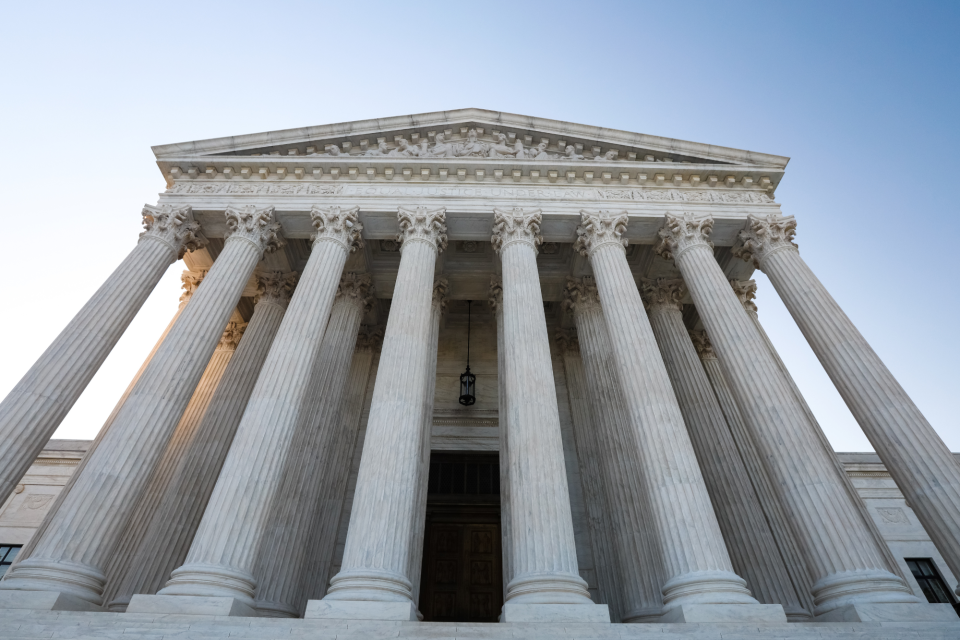Source: Johnson v. Grants Pass Website
On April 22nd 2024, the Supreme Court of the United States will hear the case of Johnson v. Grants Pass. This sets the stage for the most significant Supreme Court case about the rights of homeless people in decades. At its core, this case will decide whether cities are allowed to punish people for things like sleeping outside with a pillow or blanket, even when there are no safe shelter options.
Johnson v. Grants Pass is a court case originally filed in 2018 that determined it is cruel and unusual punishment to arrest or ticket people for sleeping outside when they have no other safe place to go. The case started in Grants Pass, Oregon when the city began issuing tickets to people sleeping in public, even when there were not enough safe, accessible shelter beds.
Grants Pass, like many cities in America, is thousands of housing units short of what is needed. That shortfall will not be solved by putting more people in jail or issuing more tickets. The solution to homelessness is safe, decent, and affordable housing for everybody.
FAQs
What is the timeline for the case?
April 22nd: Oral arguments and in-person rally at the Supreme Court.
June 30th: End of court term. A decision will be made by this date.
Why is this case important?
More than 600,000 people experience homelessness on a given night in America. Nearly half of these people—250,000—sleep outside. Homelessness is increasing across the country, as more and more hardworking households struggle to make ends meet. Rent is too expensive, wages are too low, and we have seen decades of failed housing policies. Instead of focusing on solutions like rental assistance and eviction prevention, cities and states are trying to arrest their way out of homelessness. Homelessness is caused by a lack of housing that people can afford. The solution is not court or jail, the solution is providing people with housing with services.
What happens if SCOTUS rules in favor of Johnson?
If SCOTUS hears the case and upholds the current decision, jurisdictions across the country will no longer be able to criminalize people for existing when they have nowhere else to go. By taking expensive, short-sighted, and unconstitutional criminalization options off the table, cities and states will have to focus on the true solution to homelessness: housing.
What happens if SCOTUS rules in favor of Grants Pass?
If SCOTUS rules in favor of Grants Pass and not the 250,000 Americans who sleep outside on a given night, it will give cities and states permission to punish people who are forced to sleep outside, even when they have no other safe option. A ruling like this would not only do nothing to end homelessness, it would punish people for existing in public simply because they have nowhere else to go.
Studies and experience show that criminalizing homelessness is a waste of taxpayer money and actually makes it harder to connect people with housing. Such a ruling would be a clear sign that SCOTUS, like the politicians of both parties, would rather make homelessness invisible instead of ensuring people have safe, dignified housing.
What are other solutions to homelessness?
There are many proven and data-backed solutions to homelessness, like providing people with housing and services. Arresting or otherwise punishing homeless folks is not a solution, and jails and fines make the cycle of homelessness worse.
Cities like Miami, Milwaukee, and Houston have made tremendous progress in solving homelessness by funding housing and services. When folks have the housing and support they need, they no longer live outside. Miami, for example, is under a ruling similar to Grants Pass. Instead of seeing an increase in homelessness, Miami has cut its homeless population in half by providing adequate housing and shelter. Again, this proves that housing is the solution to homelessness.
Short-term solutions like shelters where everybody has their own room, regular trash pick up, and homeless outreach are also vital in solving homelessness.
Homelessness is solvable, but focusing on tickets or jail takes resources away from housing and support.
Social Media Toolkit from the National Homelessness Law Center
